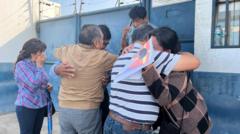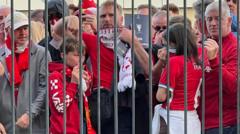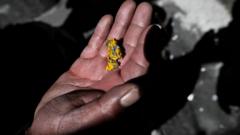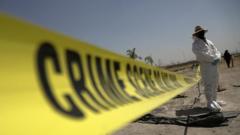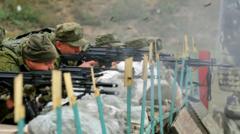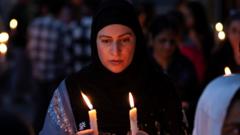Human rights organizations in Guinea have reported that more than 135 individuals, primarily children, lost their lives in a devastating stampede at a stadium during a football match. This figure starkly contrasts with the official death toll of 56. The alarming estimates are founded on information gathered from multiple sources, including hospitals, cemeteries, eyewitnesses, and local media reports. Concern for the wellbeing of more than 50 additional fans remains as they are reported missing in the aftermath of the tragedy.
Tragedy Strikes as Over 135 Die in Guinea Football Stadium Crush
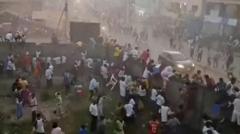
Tragedy Strikes as Over 135 Die in Guinea Football Stadium Crush
Eyewitness reports suggest alarming casualty figures after a chaotic match day in Nzérékoré.
The military government has cautioned against circulating what it deems "unverified" information, asserting that investigations are underway in Nzérékoré—the country's second-largest city. Justice Minister Yaya Kaïraba Kaba has prompted a judicial inquiry into potential wrongdoing related to the disaster and has warned that anyone spreading inaccurate information may face arrest and prosecution.
This catastrophic incident occurred following a contentious refereeing call during the match, igniting a violent reaction. In a desperate attempt to escape, spectators endured tear gas deployed by police, crucially in a confined area where chaos ensued. Rights organizations have pointed fingers at the event organizers and the military junta, which held the tournament in honor of President Mamady Doumbouya, for the tragedy. They claim that the dangerous circumstances were exacerbated by the restricted number of exits in the stadium and that some fleeing supporters were struck by vehicles carrying officials departing the scene.
Prime Minister Mamadou Oury Bah announced three days of national mourning for the victims, emphasizing the nation's shared grief. Government spokesperson Ousmane Gaoual acknowledged the distress but suggested that the provisional figures provided should be treated with caution and without contradiction to any other reports.
Eyewitness accounts describe the stadium as overwhelmingly full, leading to panic when the crush occurred at the sole, narrow exit. Guinea, along with several other African nations, currently faces bans from hosting international football matches due to failure to meet required safety standards, exacerbating an already precarious situation in the region's sporting landscape.
This catastrophic incident occurred following a contentious refereeing call during the match, igniting a violent reaction. In a desperate attempt to escape, spectators endured tear gas deployed by police, crucially in a confined area where chaos ensued. Rights organizations have pointed fingers at the event organizers and the military junta, which held the tournament in honor of President Mamady Doumbouya, for the tragedy. They claim that the dangerous circumstances were exacerbated by the restricted number of exits in the stadium and that some fleeing supporters were struck by vehicles carrying officials departing the scene.
Prime Minister Mamadou Oury Bah announced three days of national mourning for the victims, emphasizing the nation's shared grief. Government spokesperson Ousmane Gaoual acknowledged the distress but suggested that the provisional figures provided should be treated with caution and without contradiction to any other reports.
Eyewitness accounts describe the stadium as overwhelmingly full, leading to panic when the crush occurred at the sole, narrow exit. Guinea, along with several other African nations, currently faces bans from hosting international football matches due to failure to meet required safety standards, exacerbating an already precarious situation in the region's sporting landscape.

